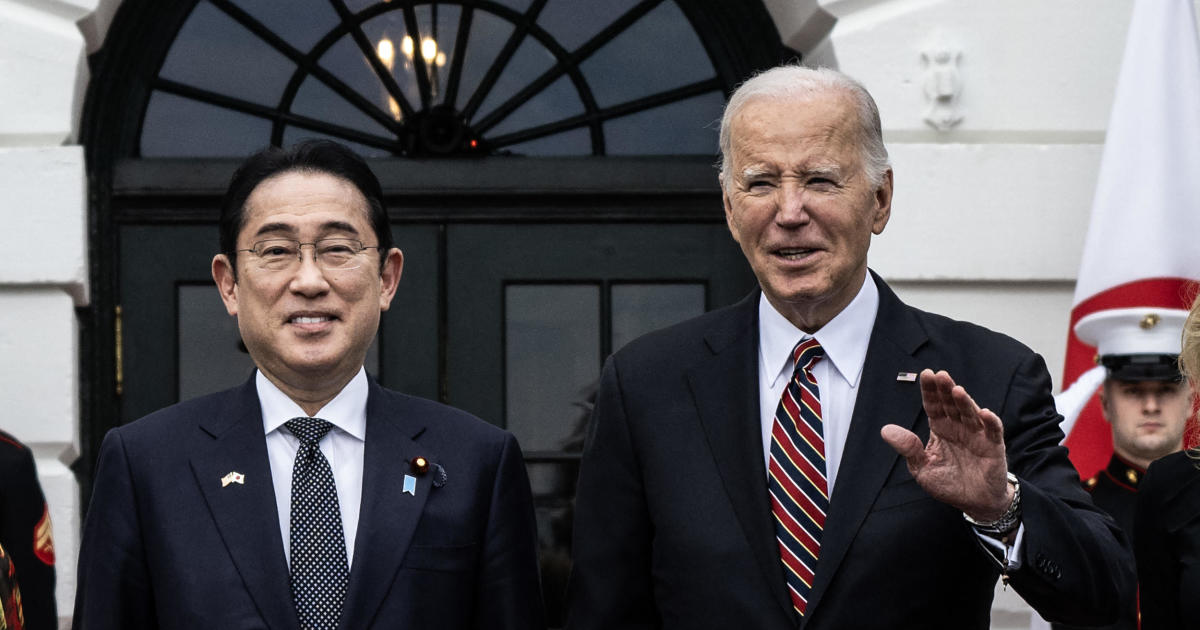/ CBS News
Biden expected to discuss U.S.-Japan alliance
President Joe Biden and Japanese Prime Minister Fumio Kishida are expected this week to announce a ramped-up level of defense and intelligence cooperation between the two countries, senior administration officials said.
The officials said details of the enhanced military partnership will be worked out by Defense Secretary Lloyd Austin and his Japanese counterpart in the next several months. However, the U.S. expects Japan to step up and play a significant role in producing more military and defense equipment.
With Philippines President Bongbong Marcos joining the two leaders for a three-way summit on Thursday, another clear goal of this week's meetings between the U.S. and the Asian nations has become clear: underscoring global coordination in the face of increased hostility in the region from China.
China in recent weeks has had some maritime run-ins in the South China Sea with the Philippines, with the Chinese Coast Guard directing water guns at Filipino vessels.
This hostility will not deter the Philippines, U.S. officials said. "The country that is isolated on Thursday is China, not the Philippines," one official said about the three-way Washington summit this week.
Regarding greater intelligence cooperation, U.S. officials noted the Japanese have "taken substantial steps" to protect the most sensitive intelligence information, although the official said there's "still more work to do" before Japan reaches the required level of information security to potentially join the Five Eyes intelligence network. Joining that intelligence sharing agreement — which consists of the U.S., Canada, Australia, New Zealand and the United Kingdom — is viewed by Japanese security experts as a means of adding more protection against China's provocations.
Officials shared one other way to bring Japan into more defense and intelligence sharing: the country will start consultations to potentially join a Biden-era security pact between Australia, the U.K., and the U.S.
These high-level objectives are part of a 70-point plan that the U.S. and Japan are expected announce this week.
Other promises are more lighthearted. Japan has offered saplings to replace hundreds of popular cherry blossom trees in the Tidal Basin area, and the Japanese prime minister is expected to start some of these plantings at a ceremony on the National Mall on Wednesday.
A "major" lunar agreement, increased university research, and a new scholarship for U.S. high school students to enter into exchange study programs with Japanese schools will also be announced, the officials said.
Overall, the U.S. officials also said the U.S.-Japan alliance is proof Mr. Biden's theory of increased engagement with Indo-Pacific nations would foster more cooperation throughout the world. One senior administration official said previously Japan was only worried about its "perimeter," but in recent years, the country has been a vocal supporter of Ukraine, sanctions against Russia, and has engaged more in the Middle East.
"Anywhere American purpose is being put to the test, Japan is by our side," one U.S. official said.

